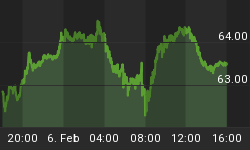There is an open secret in the oil industry that dare not speak its name: peak oil.
Well, two did speak its name and gained no acclaim for it. One, M. King Hubbert, died years ago. The other and the most controversial, Matthew Simmons, died at his Maine summer home Aug. 8.
The peak oil idea is simple: Oil is a finite commodity, and one day we are going to use up all of it.
Hubbert, a geologist, began speculating on the effects of the gradual decline in worldwide production in the 1950s. He expressed this in a simple graph, which became known as "Hubbert's pimple."
He tended to draw the graph freehand, and it looked more like a Rubenesque breast than a pimple. It was so simple that he drew it over and over again to illustrate his points for journalists and politicians. Later, he would draw lines through the pimple to demonstrate where we had been and where we were going, based on the then-known reserves and rate of depletion.
For his scholarship, Hubbert was eased out at Shell Oil Company in 1964. He took a job with the U.S. Geological Survey and continued his speculative research--until he was thrust into national prominence by the oil crisis of the 1970s.
Simmons, in contrast, was a much more apocalyptic predictor than Hubbert. His illustration is a stark tower of a graph, more like the Empire State Building than the gentle curve of a woman's breast. He saw all the oil on Earth savagely used up in just two centuries, the 20th and the 21st , resulting in international catastrophe probably by 2040.
In one television interview, Simmons sounded like a survivalist. He said he was stocking his home with all kinds of supplies in order to survive the food and fuel shortages which would accompany the decline in oil availability, and the impending international chaos and hostility.
In the energy industry, which has a definite aversion to bad news and hard questions, Simmons was an agent provocateur and an effective one; effective because he was of the industry not outside it.
Simmons was an oil man and his firm, Simmons & Company International, was founded in Houston in 1974. It grew to be one of the world's most influential energy investment banks, with offices in Houston, London, Aberdeen, Scotland and Dubai, United Arab Emirates. It has been responsible for hundreds of billions of dollars of merger and acquisition activity.
The industry loved the deals Simmons made possible, but not his talk of doom and chaos.
In particular, Simmons distressed Saudi Arabia by analyzing production data and detailing what he concluded was a decline in the rate of drawdown on the Ghawar oil field, the world's largest. This was the thrust of his book, "Twilight in the Desert," and it incensed the Saudis and their oil company, Aramco. It also forced them to increase their field management efforts and make their operations more transparent.
Whereas Hubbert, who died in 1989, was a gentle seer of trouble ahead, Simmons was the knock on the door before dawn.
Ultimately both have been betrayed by time and, in Hubbert's case, technology. But their arguments have not been invalidated.
Hubbert did not foresee the enormous technological advances in exploration and drilling, including greater depths, horizontal wells and 3D seismic.
Simmons saw all these things and concluded nonetheless that world demand for oil is so high that the end is near. He believed that once global production peaked and the 86 million barrels a day now consumed cannot be provided, oil will rise in price steadily to $200 a barrel and going as high as $500 a barrel as chaos and fear spread.
In recent months, Simmons became even more controversial. Correctly, he estimated that BP spillage in the Gulf of Mexico was many times what the company had first claimed and was almost spot on. But he also said that BP would be forced into bankruptcy and that a nuclear device was the only way to stop the leak. BP responded by ending its relationship with Simmons' bank. And Simmons ended his lingering involvement with it, as well.
Simmons was a perfect storm of a man, raging against the myths and self-satisfaction of the oil industry. In his absence, there will be a certain quietude in the petroleum clubs of Houston, Denver and Edmonton, Canada and elsewhere.
But in their hearts, they fear he was right.
Source: http://oilprice.com/Energy/Crude-Oil/They-Died-Before-the-Oil-Ran-Out.html
By Llewellyn King for Oilprice.com who offer detailed analysis on Oil, alternative Energy, Commodities, Finance and Geopolitics. They also provide free Geopolitical intelligence to help investors gain a greater understanding of world events and the impact they have on certain regions and sectors. Visit: http://www.oilprice.com















